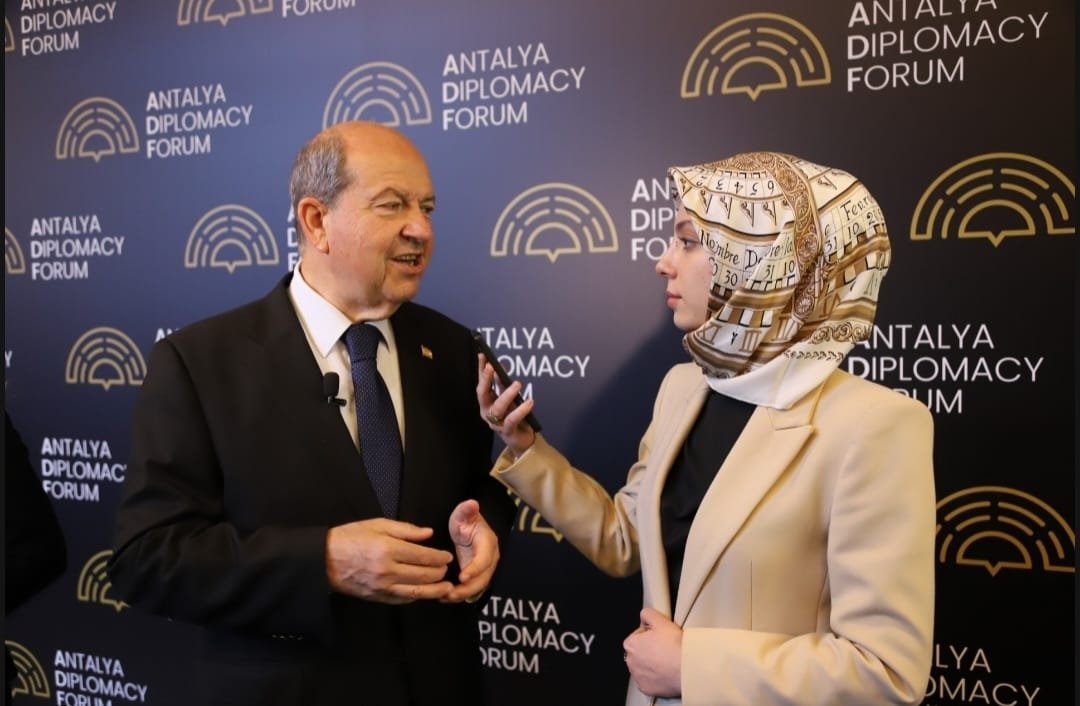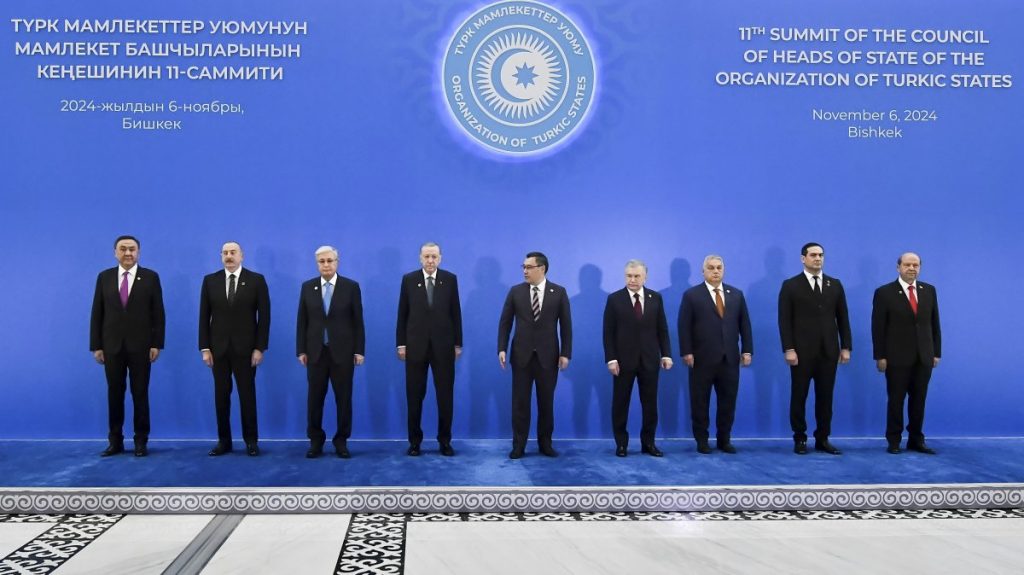The decades-long unresolved Cyprus issue has once again taken center stage on the international agenda after the Turkish Republic of Northern Cyprus (TRNC) joined the Organization of Turkic States (OTS) as an observer member under its constitutional name and flag. According to TRNC President Ersin Tatar, while this move was welcomed across the Turkic world, it also triggered intensified diplomatic pressure orchestrated by the Greek Cypriot Administration of Southern Cyprus (GCASC) and Greece through their influence over the European Union (EU).
Speaking to Daily Sabah on the sidelines of the Antalya Diplomacy Forum held in the southern Turkish city last week, Tatar emphasized that the EU has been systematically pressuring Turkic states via the GCASC and Greece. However, despite these pressures, the TRNC remains steadfast in its vision of integration with the Turkic world. Describing GCASC’s reaction with the phrase “They went crazy,” Tatar noted that while some Turkic states showed interest in cooperating with the TRNC on environmental and economic initiatives, Brussels intervened to block such efforts. Tatar stated that the EU has also turned its energy-related interests into a means of pressure, aiming to weaken ties between the Turkic world and the TRNC.

“Without the support of the Greeks and Greece, other countries can’t do much,” said Tatar. “The EU has a long reach. There are also some energy matters that concern the EU. All of this, of course, caused problems,” he added, pointing to Brussels’ indirect interventions.
Nonetheless, the TRNC is not backing down. Tatar affirmed this determination: “We’ll keep meeting with them and say: ‘Do something with us too. Do something with the Turkish Republic of Northern Cyprus.’”
The OTS summit held in Samarkand, Uzbekistan, in November 2022 marked a significant turning point in increasing the TRNC’s visibility in the Turkic world, thanks to Ankara’s support. President Recep Tayyip Erdoğan described the decision to admit the TRNC as an observer member as a “historic step.” This development carried both diplomatic and symbolic weight, injecting new momentum into the TRNC’s quest for international recognition.
Two separate states
Tatar further stated that the vision for a solution to the Cyprus issue has profoundly transformed. He argued that more than 60 years of federal-based negotiations have yielded no results and that it is now time to base any solution on the reality of two separate states:
“For over 60 years, uninterrupted negotiations have taken place on this issue. With strong support from Türkiye, especially from President Erdoğan, the vision for a solution is now shaped around the two-state model. The United Nations still insists on federation and reunification. But we will not go back to that framework. We’ve discussed it for 60 years. Any future solution must be based on the reality of two separate states.”
Tatar’s statements mirror the new solution paradigm declared in Geneva in 2021 and supported by Türkiye. He argues that a two-state solution not only aligns with political realities but also reflects the sovereignty and equality demands of the Turkish Cypriot people.
Meanwhile, the EU’s biased stance on the Cyprus issue has long been criticized. Despite its rejection of the Annan Plan, the decision to admit the GCASC into the EU in 2004 created deep distrust on the Turkish side. This distrust was further reinforced by the EU’s continued isolation policies toward the TRNC.
Recent developments reveal that the EU remains committed to this line, stepping up efforts to prevent the Turkic world from forging closer ties with the TRNC. However, the current diplomatic posture of both Ankara and Lefkoşa suggests a firm stance in the face of these pressures.
TRNC’s foreign policy seeks international recognition and multidimensional cooperation with Turkic states on cultural, economic and political levels. This strategy also redefines the vision for a solution on the island: not a federation but two sovereign and equal states.


